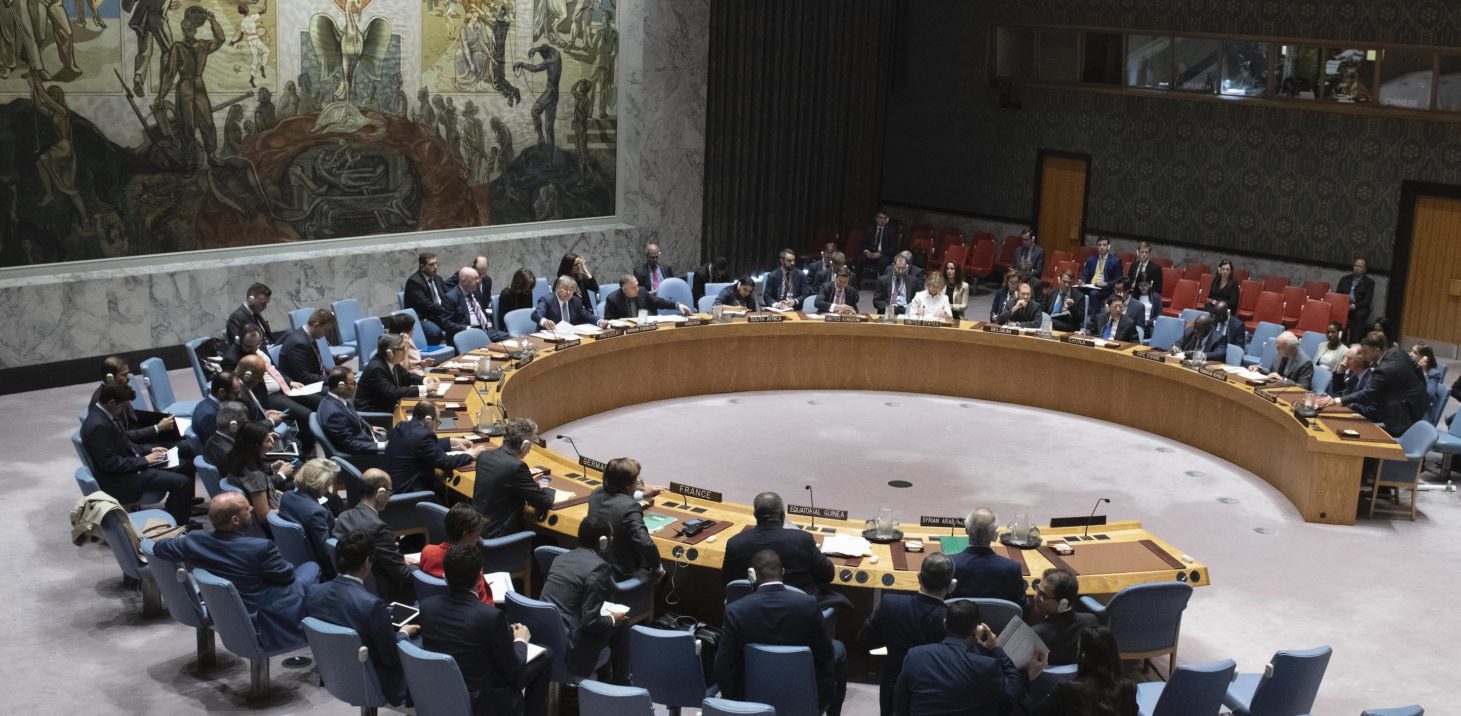

Serving as a credible advisor to UN Security Council (UNSC) members, the Global Centre urges the Council to uphold its commitment to R2P and the protection of civilians. It does so by utilizing bilateral meetings with states at their permanent missions to the UN in New York, confidential briefings and workshops, letters and statements, and advocating for regular and formal briefings from UN human rights mechanisms in an effort to bring attention to atrocity situations. Global Centre staff provide expert advice to UNSC members regarding the inclusion of R2P language in resolutions on relevant country situations and thematic areas, and encourage the Council to view situations through an atrocity prevention lens.
One of the Global Centre’s key strategies in its engagement with the UNSC has been to mobilize Council members who also belong to the Group of Friends of R2P. In this regard, the Global Centre hosts regular dinners amongst states serving on the UNSC who are also members of the Group of Friends to discuss situations where populations are facing, or are threatened by, mass atrocity crimes. UN Security Council Ambassadors come together to explore strategic steps to advance practical measures aimed at preventing or halting atrocities. Such meetings also provide a space to discuss ways to improve the Council’s working methods.
Over the last decade there has been growing support for the voluntary restraint on the use of the veto by the permanent members of the Security Council, known as the “P5,” in mass atrocity situations. The failure of the UNSC to protect civilians from mass atrocity crimes – genocide, war crimes, ethnic cleansing and crimes against humanity – has severely impaired its credibility in the eyes of the wider UN membership and the public.
Since 2011 the veto has been exercised dozens of times by one or more P5 states, most notably China, Russia and the United States. Many of the vetoes have blocked the adoption of resolutions meant to address crimes against humanity and/or war crimes committed against populations in Israel and the Occupied Palestinian Territory, Mali, South Sudan, Sudan, Syria, Ukraine, Yemen and more. In this time, the threat of the veto has also inhibited action on other crises. These vetoes have undermined the legitimacy of the UNSC, shielded perpetrators from accountability and cost lives. The UNSC has similarly failed to pass substantive resolutions regarding the situations in Ethiopia and Myanmar, despite Human Rights Council-mandated investigative mechanisms finding evidence of mass atrocity crimes.
Veto restraint in atrocity situations was first suggested by French Foreign Minister Hubert Védrine in 2001 and later announced again by President François Hollande in his address to the UN General Assembly in 2013, and further articulated in more detail by French Foreign Minister Laurent Fabius in an op-ed in the New York Times on 4 October 2013.
During 2015 France launched a “Political Declaration on suspension of veto powers in cases of mass atrocity,” open to all member states to support. The Political Declaration is focused only on the five permanent members of the UNSC and calls for voluntary restraint of the use of the veto in cases of mass atrocities. As of July 2022, the Political Declaration was supported by 104 member states and 2 UN observers.
In 2013 the Accountability, Coherence and Transparency (ACT) Group was launched, composed of a cross-regional group of member states aiming to improve the transparency of the UNSC’s working methods. In 2015 the ACT Group developed a “Code of Conduct regarding Security Council action against genocide, crimes against humanity and war crimes,” urging UNSC members to voluntarily refrain from voting against draft resolutions involving mass atrocity situations. The code aims to encourage timely and decisive action by the Council to prevent or end the commission of mass atrocity crimes. As of 2022 the Code of Conduct has been signed by 121 member states, including two permanent members of the Council (France and the UK), and 2 observers.
Following intensive advocacy by the ACT group on 26 April 2022 the UN General Assembly adopted a landmark resolution that aimed to hold the P5 accountable for the use of the veto in situations of mass atrocity crimes. Through the adoption of the resolution the UNGA decided that its President shall convene a formal meeting of the assembly within 10 working days of the casting of a veto by one or more permanent members of the Council and hold a debate on the situation as to which the veto was cast, provided that the Assembly does not meet in an emergency special session on the same situation.
Ralph Bunche Institute for International Studies
The Graduate Center, CUNY
365 Fifth Avenue, Suite 5203
New York, NY 10016-4309, USA